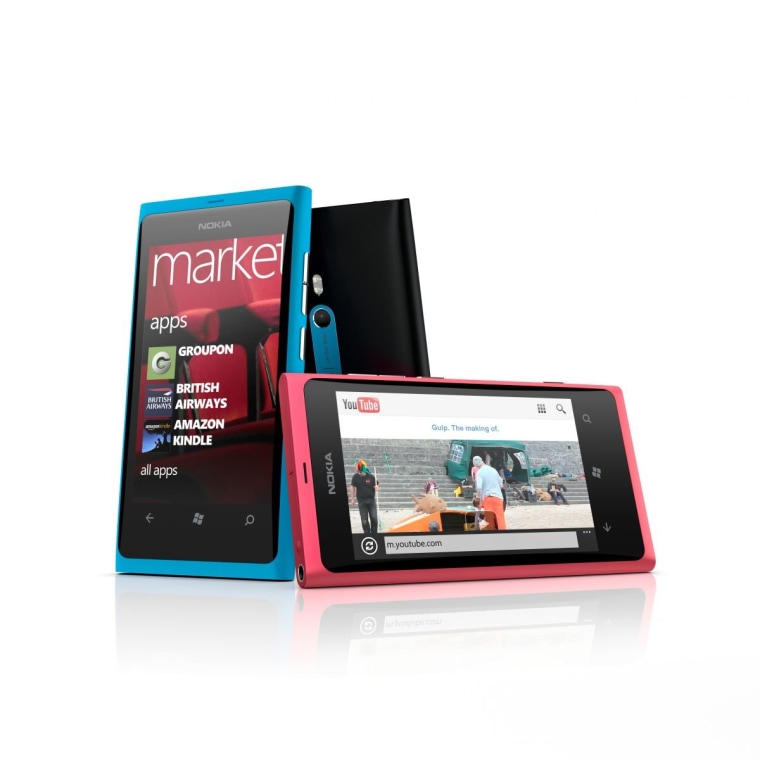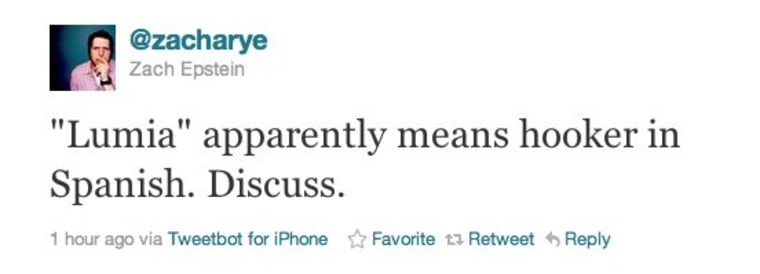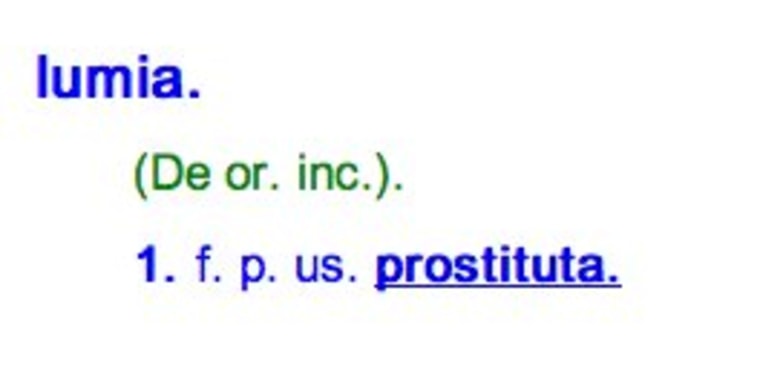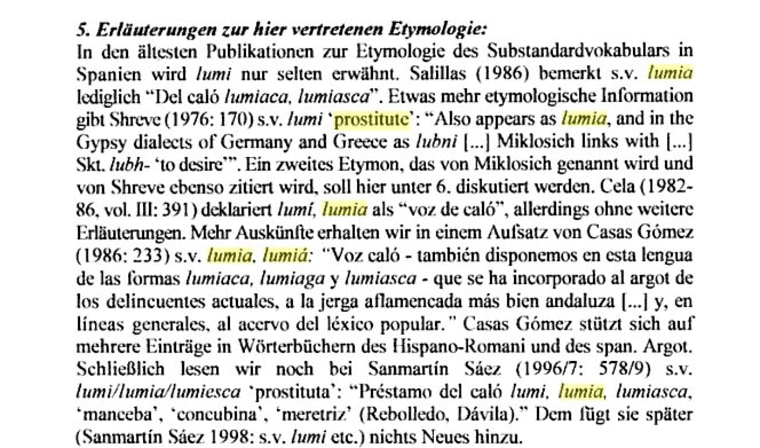
A few weeks ago we giggled when we realized that the name of the virtual personal assistant built into the iPhone 4S vaguely sounds like a Japanese term for "buttocks," but now we're just shaking our heads in disappointment as yet another tech company stumbles its way through the product naming process.
How on earth did smartphone maker Nokia not realize that the names of its latest devices — the Lumia 800 and the Lumia 710 — happen to match a colloquial term for "prostitute" in Spanish?

Now, I am — despite what some frequently seem to assume based on my given name — not a native Spanish speaker, so I had to consult a handful of dictionaries to confirm that this awkward translation was accurate after hearing about it on Twitter.
The squeaky clean reference texts sitting on my bookshelf were of no help, but that wasn't surprising — they fail to include most slang terms. That was not a problem though, because the Real Academia Española and Google Books came to the rescue.
The Real Academia Española is an institution that is considered one of the authorities of the Spanish language. According to its online dictionary, "lumia" is a synonym for "prostituta."

And in case you're wondering whether "prostituta" just happens to sound similar to the English term for a lady of the night, let's set things straight:

Yes, that translates as "Person who has sex for money."
Now, I know that someone out there is currently shouting "I'm a fluent speaker of Spanish and I've never heard this definition! You're wrong about this whole thing, Rosa! WRONG! The dictionary is wrong! Everything is wrong!"
And that's where Google Books steps in with an explanation as to why some Spanish speakers might not be familiar with this translation of the word "lumia."

Google's clever book-searching tool pulls up a German text called "Der Gitanismo im spanischen Argot" by a fellow named Bernhard Helzle-Drehwald. (The title loosely translates as "The Gypsy in Spanish slang.") This particular book explains that the word is the result of Gypsy dialects slipping into the Spanish language. It is not a particularly commonly used term and only appears in Spanish dialects with heavy Gypsy influences.
This may explain why the folks at Nokia did not realize that they were giving their latest products an awkward name, but I still don't see it as an excuse — someone should've cracked open an etymology book or twenty at some point during the product naming process and researched things.
Related stories:
- Awkward: Apple's Siri translates as 'buttocks' in Japan
- 'OMG,' and 'LOL' added to the dictionary
- 'NSFW,' 'ZOMG,' and 'Twittersphere' added to dictionary
Want more tech news, silly puns, or amusing links? You'll get plenty of all three if you keep up with Rosa Golijan, the writer of this post, by following her on Twitter, subscribing to her Facebook posts, or circling her on Google+.